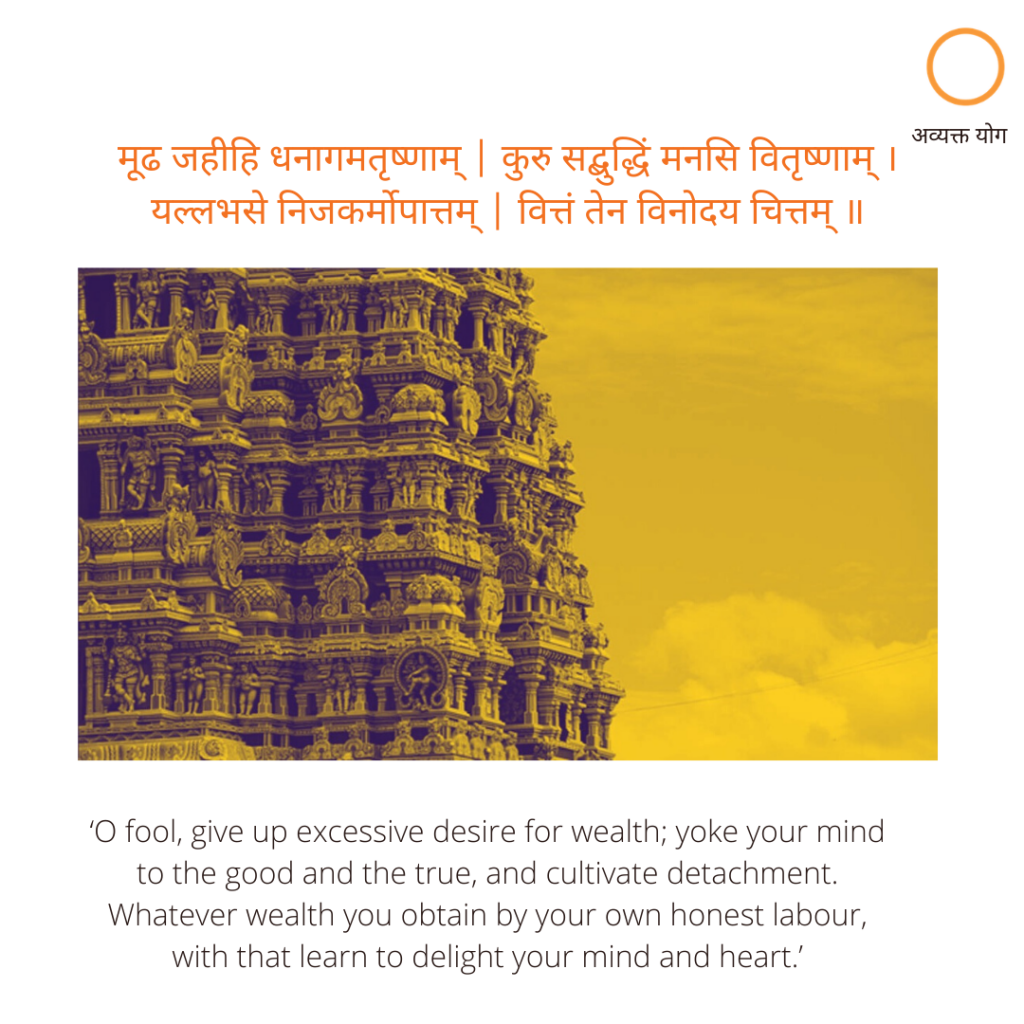आदि शङ्कराचार्यः (Ādi Śaṅkarācāryaḥ) is arguably the most important and revered guru in Sanātana Dharma.
Today is observed as Adi Shankaracharya Jayanti, or the birth anniversary of Ādi Śaṅkara.
Ādi Śaṅkara was born in Kalady which is situated in Kerala during 788 C.E. and he attained mahāsamādhi at young age of 32 in year 820 C.E.
My most favorite composition of his is Nirvana Śhatakam. That is but a drop in the vast treasure of knowledge that he imparted to the world in the short time that he lived on this earth.
And so today, I bring to you an older post of mine, one that can serve to whet your appetite and possibly lead you to try to discover more of what he said.
Said, not preached.
Because saying is stating a fact or an opinion, without the compulsion to agree or conform. Preach, on the other hand, is to earnestly advocate one’s own belief. Something that Sanātana Dharma has never believed in.
We are all seekers, not believers. Here are a few words that you can ponder about, and I welcome you to reach your own conclusions.
मूढ जहीहि धनागमतृष्णाम्
कुरु सद्बुद्धिं मनसि वितृष्णाम् ।
यल्लभसे निजकर्मोपात्तम्
वित्तं तेन विनोदय चित्तम् ॥
mūḍha jahīhi dhanāgamatṛṣṇām
kuru sadbuddhiṃ manasi vitṛṣṇām |
yallabhase nijakarmopāttam
vittaṃ tena vinodaya cittam ||
from Bhaja Gōvindam, written by Jagadguru Adi Śaṅkarācārya

‘O fool, give up excessive desire for wealth; yoke your mind to the good and the true, and cultivate detachment. Whatever wealth you obtain by your own honest labour, with that learn to delight your mind and heart.’
Bhaja Govindam is a short composition by Ādi Śaṅkarācārya. It is said that this was a spontaneous reaction when he saw an old man studying the grammar rules of Pānini, and wondered why the man was still engaged in mere intellectual pursuits at an age when he would be better off trying to seek the Self through devotion and self-introspection.
This śloka can be interpreted in many ways. Does Śaṅkarācārya mean that we should not work towards wealth and material fulfilment? Do we have to give everything up and just engage in devotion?
Far from it.
Śaṅkarācārya awakens us right way, calling us fools. A natural reaction to this would be to sit up, get a bit annoyed, and think – why would he call me a fool? Now that he has your full attention, he goes on to put his point across. If your mind is possessed with desire for EXCESS wealth – wealth that you cannot take away with you, the result is only dissatisfaction, anxiety and stress. Get rid of this desire he says, and enjoy the benefits of what you truly earn, with satisfaction and delight.
Once the desire for more and more is calmed down, our minds are free to think about what truly matters – we replace stress with joy. This is Pratipaksha Bhāvanā.
As described in Yoga Sutras –
वितर्कबाधने प्रतिपक्षभावनम्
vitarka-bâdhane pratipakæa-bhâvanam
vitarka = analytical thinking, unwholesome thoughts bâdhane = repelling
pratipakṣa = opposite
bhâvanam = realizing, becoming
Modern science calls it cognitive reframing, or reappraisal.
“Our emotional responses ultimately flow out of our appraisals of the world, and if we can shift those appraisals, we shift our emotional responses.”, says Kevin Ochsner from Columbia University. Reappraisal basically means consciously choosing how you perceive any situation, which has an impact on the kind of emotions that will emerge from it.
So Śaṅkarācārya urges us to reframe our appraisal of the world, from looking at accumulating excesses, to developing spiritual thought processes. A certain amount of wealth is needed, but not at at the cost of your spiritual well-being.
Enjoying the fruits of your hard work leads to happiness and contentment, and a peaceful life. At the end of the day, that is what we all want from the inside, isn’t it?
I leave you with a classical rendering of Bhaja Govindam, by Bharat Ratna M.S. Subbulakshmi. Wish you a pleasant day ahead:)
